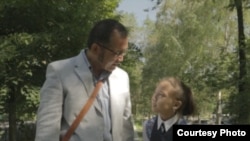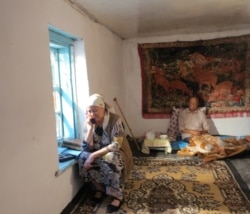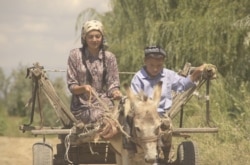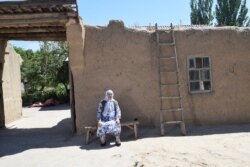Walking across the streets of London on a sunny morning, Aziz Isa Elkun is holding his little daughter's hand and talking to her about what it is like to be a bird.
At first, it may seem like an ordinary scene of a father chatting with his daughter as he takes her to school, but the conversation soon alters to show how it feels for thousands of Uighurs who are unable to "fly freely" and return to their homeland of Xinjiang in northwestern China.
"Look, my daughter, look at the birds," the filmmaker tells his daughter in "An Unanswered Telephone Call," a short film based on his life story. "They fly freely above the trees; they don't know borders. At the moment, if I become a bird right now, I would fly straight off to my homeland."
Film
The next scene of the film takes the audience deeper into the nostalgic feeling accompanying most Uighurs abroad, as they long to know the whereabouts of their loved ones stranded in China's Xinjiang province.
Elkun meets Lucie, a French woman from Nice, who is also taking her daughter to school, while at the same time exuberantly face-chatting via phone with her mom on her 80th birthday.
"How lucky you are to be able to speak to your mother through a video call. I'm jealous," Elkun tells Lucie.
In an interview with VOA, Elkun said his father died in October 2017. He is not sure whether his 76-year-old mother is still alive because she stopped taking calls from him in early 2018.
"After I heard my father's health was deteriorating, I applied for a visa on humanitarian grounds at the Chinese Embassy in London, but my visa application was refused," he told VOA. He last heard from his mother in January 2018 when she told him Chinese police had ordered her not to answer international calls or she would "face consequences."
"I was shocked, frustrated and very sad. I waited for a week and called my mother again, but the phone was unanswered," Elkun said of the incident that inspired the title of his film.
Elkun moved to the United Kingdom in 2001 as a political refugee and is now a naturalized British citizen, living with his wife and two children in London. He works as a researcher and writer for the University of London, while at the same time remaining an active advocate for the Uighur ethnic minority.
He said he hopes the film, which made its debut in Washington last month, will help educate people about the Uighurs’ plight in Xinjiang autonomous region amid the severe crackdown they face from the Chinese Communist Party.
"I just simply wanted to make a voice through making this film and publicizing it," Elkun told VOA, adding, "So many people don't know what Uighurs are facing at the moment. Uighurs in diaspora struggle to gain information about family, and many have not been able to speak to their relatives in China for years."
Uighur issue
Xinjiang, in northwest China, is home to nearly 22 million people and has the greatest concentration of Muslims in China. There are an estimated 13 million Uighurs and other Turkic Muslim minorities in the region.
The Chinese government has faced growing international criticism in recent years for the detention of what is reported to be more than a million Uighurs and other Muslims in the so-called re-education camps.
Chinese officials say the camps are vocational training centers and that their measures are necessary to combat "the three forces of evil" of "terrorism, religious extremism and separatism" in the region.
Ethnic cleansing
The crackdown, however, is seen by many experts and rights groups as systematic ethnic cleansing.
Rebecca Clothey, director of global studies at Drexel University in Philadelphia and a researcher on Uighurs, said Chinese officials have cut off local Uighurs in Xinjiang from outside contact to try to hide government actions in the region.
She said the censorship has a serious psychological impact on those of the minority who have fled home.
"People at home, I mean in the Uighur region, are afraid to talk to people outside because they are worried about getting accused of talking to 'terrorists,'" Clothey told VOA.
New surveillance measures
A recent Human Rights Watch report found China's government has imposed a surveillance system to monitor popular communication applications such as WhatsApp, Viber, Telegram, as well as virtual private networks (VPNs). It said the new system also closely followed people's relationships, traveling with someone who is on a police watch list or has obtained a new phone number.
Through the country's Strike Hard Campaign, watch groups say, authorities have also collected biometrics, including DNA samples, fingerprints, iris scans and blood types of all residents in the region ages 12 to 65.
Despite the heavy-handed campaign, Elkun told VOA he was optimistic that his people would preserve their Turkic identity. He said his film could teach Uighurs growing up abroad to remember Xinjiang, called "East Turkistan" by Uighurs.
At the end of the film, Elkun's daughter tells him she explained to her teacher and classmates that she was from "East Turkistan, and it's a country that doesn't have independence.
"My clever girl, your daddy is proud of you," the filmmaker responds. "You know that your daddy can't live without his past. It is his identity; it is his everything. East Turkistan is an occupied country that belongs to your father, and his children and grandchildren."







